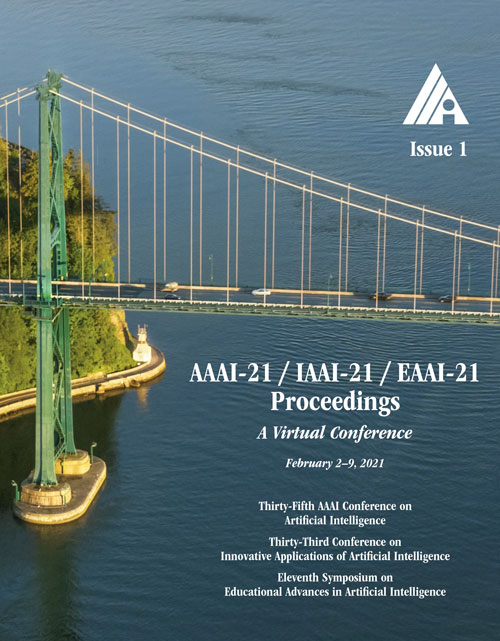PHASE: PHysically-grounded Abstract Social Events for Machine Social Perception
DOI:
https://doi.org/10.1609/aaai.v35i1.16167Keywords:
Social Cognition And Interaction, Simulating Humans, Video Understanding & Activity AnalysisAbstract
The ability to perceive and reason about social interactions in the context of physical environments is core to human social intelligence and human-machine cooperation. However, no prior dataset or benchmark has systematically evaluated physically grounded perception of complex social interactions that go beyond short actions, such as high-fiving, or simple group activities, such as gathering. In this work, we create a dataset of physically-grounded abstract social events, PHASE, that resemble a wide range of real-life social interactions by including social concepts such as helping another agent. PHASE consists of 2D animations of pairs of agents moving in a continuous space generated procedurally using a physics engine and a hierarchical planner. Agents have a limited field of view, and can interact with multiple objects, in an environment that has multiple landmarks and obstacles. Using PHASE, we design a social recognition task and a social prediction task. PHASE is validated with human experiments demonstrating that humans perceive rich interactions in the social events, and that the simulated agents behave similarly to humans. As a baseline model, we introduce a Bayesian inverse planning approach, SIMPLE (SIMulation, Planning and Local Estimation), which outperforms state-of-the-art feed-forward neural networks. We hope that PHASE can serve as a difficult new challenge for developing new models that can recognize complex social interactions.Downloads
Published
2021-05-18
How to Cite
Netanyahu, A., Shu, T., Katz, B., Barbu, A., & Tenenbaum, J. B. (2021). PHASE: PHysically-grounded Abstract Social Events for Machine Social Perception. Proceedings of the AAAI Conference on Artificial Intelligence, 35(1), 845-853. https://doi.org/10.1609/aaai.v35i1.16167
Issue
Section
AAAI Technical Track on Cognitive Modeling and Cognitive Systems

